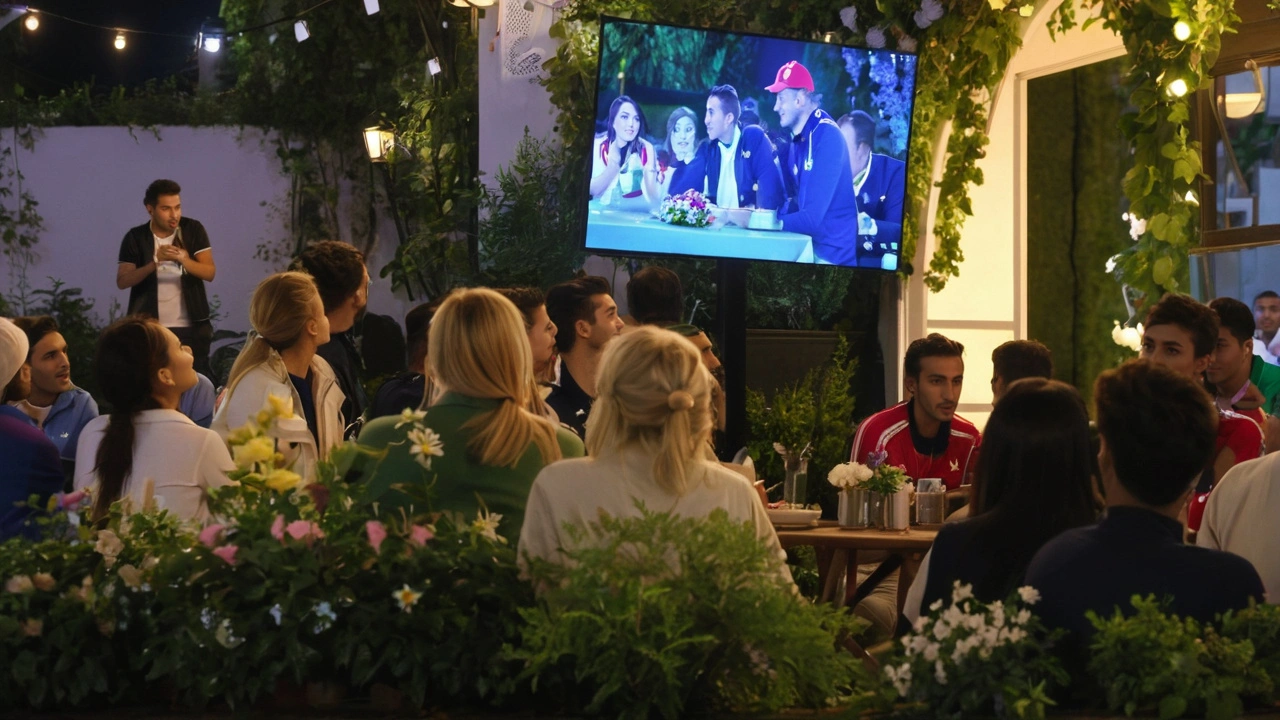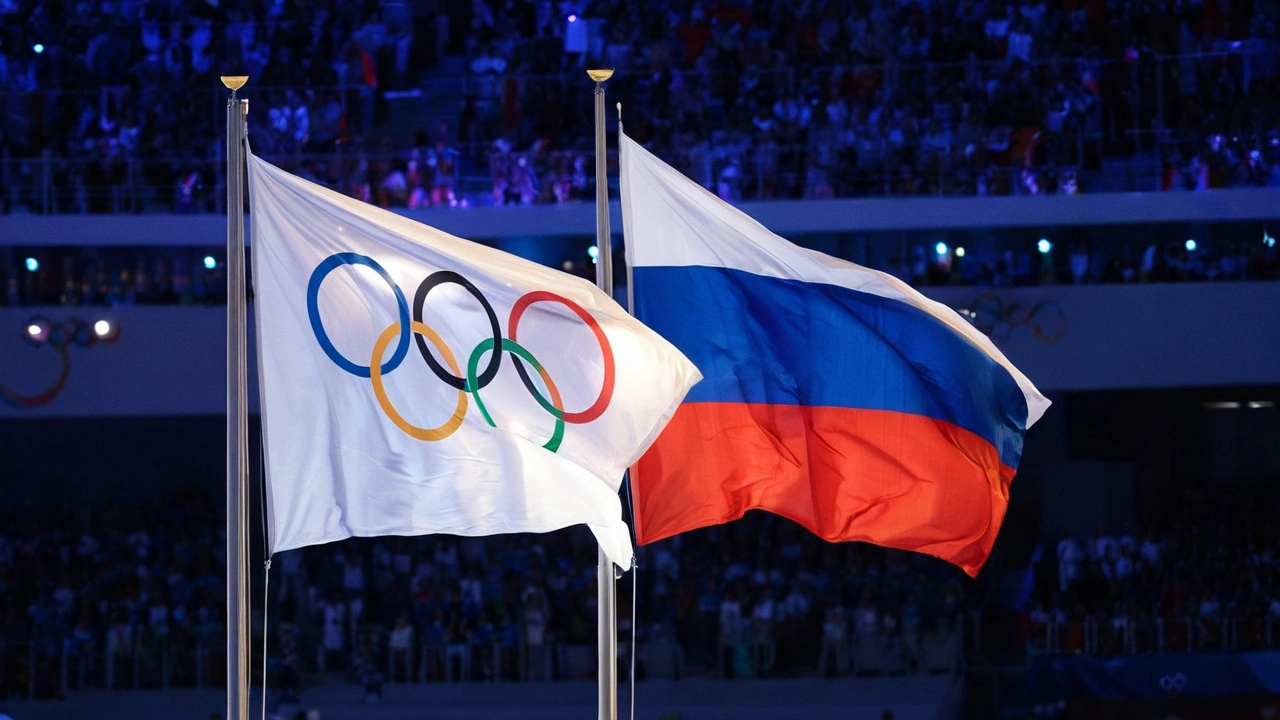The Complex Relationship Between Russia and the Olympics
The 2024 Summer Olympics in Paris draws closer, bringing the world's elite athletes together in the spirit of competition. Yet, the absence of an official Russian flag at the event marks an ongoing saga over doping scandals and geopolitical friction. Instead of parading under their national banner, Russian athletes will compete as Individual Neutral Athletes, abbreviated as AIN. This decision stems from a series of complicated decisions made by the International Olympic Committee (IOC) in response to Russia’s ongoing crises and alleged rule violations.
To understand the present, it's essential to delve into the recent past. In 2017, revelations about a state-sponsored doping scheme rocked the sports world, resulting in the suspension of the Russian Olympic Committee by the IOC. While this decision aimed to penalize the guilty and protect the integrity of the Games, it also left room for athletes not implicated in the scandal to partake in the competitions. Due to this, the 2018 Winter Olympics saw Russian athletes competing as 'Olympic Athletes from Russia' (OAR). By the time of the 2020 Summer Olympics in Tokyo, these athletes were branded under the 'Russian Olympic Committee' (ROC).
A New Name and a New Set of Rules
With even more stringent measures in place now, the IOC introduced the term 'Individual Neutral Athletes' (AIN). This move underscores the persistent concerns over Russia’s adherence to anti-doping regulations. Moreover, Russia’s involvement in the ongoing war in Ukraine has compelled the IOC to intensify its scrutiny. Consequently, athletes from both Russia and Belarus will face unique restrictions during the Paris Olympics. The decision means that these athletes won't experience the pride of seeing their national flags raised or hearing their anthems played. Banned from participating in the opening ceremony, these competitors are seen as neutral entities representing no nation, thus emphasizing a more individualistic aspect of their participation.
Numbers Tell a Story
The rigid regulations have severely impacted the number of competitors. As of June 15, just 25 Russian and Belarusian athletes have garnered approval to partake in the neutral category of events, with a further cap enforcing a maximum of 55 Russian and 28 Belarusian participants in Paris. This is a notable decline from the previous Olympics, where 330 Russian and 104 Belarusian athletes showcased their skills in Tokyo. These figures paint a compelling picture of the scale of the cutbacks, motivated by an effort to clamp down on past discrepancies while addressing newer geopolitical issues.
The stringent guidelines imposed by the IOC also call for these athletes to maintain a clear stance against the war in Ukraine. They must clearly distance themselves from any association with Russian or Belarusian national security agencies to be deemed eligible. This criteria is not just a mere formality; it is a critical element of the vetting process that aims to ensure compliance with international standards and uphold the moral framework of the Games.

The Historical Web of Russia’s Doping Scandal
The extensive doping scandal that led to the suspension of Russia from official Olympic representation is well documented, yet its repercussions continue to shape the landscape of international sports. The first signs of widespread doping emerged after the 2014 Sochi Winter Olympics, compelling anti-doping agencies to launch exhaustive investigations. Findings revealed that Russia had orchestrated state-endorsed doping operations aimed at enhancing athletic performance. These actions spanned several years and involved various sports, fundamentally betraying the trust placed in fair play.
This led to a cascading series of consequences, starting with a complete ban followed by conditional participation offered to clean athletes. Though each subsequent Olympics saw Russian athletes under different names—OAR in 2018 and ROC in 2020—their presence was constantly scrutinized. Athletes were often subjected to rigorous testing and frequent assessments to ensure their adherence to anti-doping protocols, a state of affairs that continues to this day.
Political Ramifications: The Ukraine War and International Sports
The recent escalation of geopolitical tensions with Russia’s role in the war in Ukraine has further compounded issues. The ongoing conflict has led to a stringent set of regulations tailored to separate sports from politics while advocating for peace and neutrality. The IOC has made it unequivocally clear that the behavior of states directly impacts the freedoms of their athletes. This perspective aligns with the broader ethos of the Olympics, which emphasizes global unity and peaceful competition.
Therefore, the decision to bar national symbols of Russia and Belarus from the Paris Olympics can be seen as an extension of these principles. While it imposes considerable limitations on the participating athletes, it also sends a decisive message against state policies perceived as aggressive or unethical. The very fabric of the Olympic spirit relies on neutrality and fairness, and the ongoing actions of these nations make distancing unavoidable to uphold these ideals.
Future Implications and the Path Forward
As these athletes gear up to compete in Paris, the broader consequences on their careers and the legacy of Russian sports await observation. Will this neutral status change in upcoming Olympic events? Will younger athletes lose out on opportunities due to geopolitical issues beyond their control? These are valid questions requiring thoughtful consideration as international sports bodies strive to foster an environment that prioritizes the well-being and integrity of athletes.
Though the decisions may seem harsh, they aim to strike a balance between enforcing accountability and preserving the sanctity of the Olympic movement. As the countdown to the 2024 Summer Olympics continues, all eyes will undoubtedly be on the 'Individual Neutral Athletes,' and their ability to rise above these extraordinary circumstances.
Conclusion
The Paris 2024 Olympics symbolize a new chapter for Russian athletes competing under the AIN moniker. This unique status encapsulates a myriad of challenges—from doping scandals and geopolitical conflicts to rigid international rules—all while maintaining the essence of fair competition. As these athletes step onto the global stage, their performance and conduct will be more scrutinized than ever, embodying the consequences of their nation's actions.


grace riehman
July 28, 2024 AT 03:11Hey folks, just wanted to give a quick shout‑out to all the athletes who are trying to stay focused despite the politics. It's wild how the whole neutral thing changes the vibe, but their hard work still shines.
Vinay Upadhyay
July 31, 2024 AT 14:31Oh great, another bureaucratic circus to keep the good guys from getting credit.
Eve Alice Malik
August 4, 2024 AT 01:51The timeline of Russian participation in the Olympics reads like a geopolitical thriller. After the 2014 Sochi scandal, the world watched a state‑run doping program unravel. The subsequent WADA investigation exposed a systematic effort to cheat, prompting the IOC to suspend the Russian Olympic Committee. In 2018, athletes re‑emerged under the banner of "Olympic Athletes from Russia," a clever loophole that let clean competitors compete. By the Tokyo Games, the moniker shifted again to "Russian Olympic Committee," allowing a larger contingent while still under strict scrutiny. The latest twist, "Individual Neutral Athletes," strips even the ROC label, forcing competitors to appear without any national symbols. This evolution reflects both the desire to punish state‑level misconduct and the recognition that individual athletes shouldn’t be wholly punished for their government's actions. Yet the athletes themselves face a moral gauntlet, having to publicly distance themselves from any war‑related rhetoric. The cap of 55 Russian participants for Paris is a stark reduction from the hundreds who once marched under the flag. The IOC’s stance also sends a message that geopolitical aggression has sporting consequences. While some argue this politicizes the Games, others see it as a necessary safeguard for the Olympic ideal of peace. The athletes’ performances will be judged not just on medals but on how they navigate this neutral identity. Their stories may inspire future reforms or, conversely, highlight the limits of sports diplomacy. In any case, the 2024 Paris Olympics will stand as a historic moment where the line between sport and politics is unmistakably drawn. Ultimately, the world will watch to see if the athletes can rise above the controversy and let their talent speak louder than any flag.
Debbie Billingsley
August 7, 2024 AT 13:11Russia has a storied Olympic legacy that deserves recognition, regardless of current sanctions. The athletes' dedication is a testament to the nation's resilience.
Patrick Van den Berghe
August 11, 2024 AT 00:31Look everyone is acting like this is some grand moral showdown but at the end the sport still needs talent.
Josephine Gardiner
August 14, 2024 AT 11:51It is noteworthy that, despite the complexities surrounding national representation, the athletes continue to train with commendable dedication. Their focus on performance rather than politics serves as an exemplar of professionalism.
Jordan Fields
August 17, 2024 AT 23:11The IOC's regulations are clear and must be respected.
Divyaa Patel
August 21, 2024 AT 10:31Oh, what a melodramatic spectacle! The world watches as athletes twirl under a banner of neutrality, yet their hearts roar with the fire of champions. It's a poetic tragedy, a ballet of bureaucracy and brilliance, where each jump is a protest and each sprint a silent scream. The colors of ambition bleed onto the track, unshackled by flags, but shackled by politics. In this theater of the absurd, the true drama lies not in the medals, but in the soul‑searching odyssey of every competitor.
Larry Keaton
August 24, 2024 AT 21:51Yo, I feel for the Russian peeps trying to prove themselves while the world throws shade. It's def hard to train under that kinda pressure.
Liliana Carranza
August 28, 2024 AT 09:11Let's rally behind these athletes and remind them that their perseverance is an inspiration to all of us. Keep pushing, keep shining, you’ve got a whole community cheering you on!
Jeff Byrd
August 31, 2024 AT 20:31Sure, because nothing says 'fair play' like a bureaucratic dress‑code for athletes.
Joel Watson
September 4, 2024 AT 07:51One must appreciate the delicate elegance of policy weaving itself into the fabric of sport, even if it occasionally strays into the realm of over‑intellectualization.